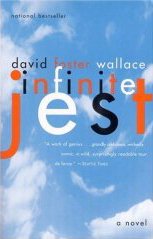On Sadness
I don't think I cried once between the ages of 16 and 25, even at the death of a family member or the breakup of a significant relationship, even when I wanted to. In my late 20s, though, I've become a bit of a softie. I've wept openly at funerals and major breakups. I can tear up just hearing some sad news unrelated to my life, and even during the sad bits in an average movie.
The thing is, I'm glad for this newfound ability to experience sadness. People say that sadness is the flipside of happiness -- that you can't have one without the other. I'm sure that's true, but sometimes the sadness itself is beautiful. When you're sad, it means that something or someone has touched you in a way that matters.
Here's an excerpt from a book on depression I recommend very much -- Feeling Good, by David Burns. The author is describing an incident he experienced as a medical student, working with a patient who was terminally ill. The patient's son asked him,
"Doctor, what is his condition? What can we expect?"
I felt a sudden surge of grief. I had felt close to this gentle, courteous man because he reminded me of my own grandfather, and I realized that tears were running down my cheeks. I had to make a decision either to stand there and let the family see my tears as I spoke with them or to leave and try to hide my feelings. I chose to stay and said with considerable emotion, "He is a beautiful man. He can still hear you, although he is nearly in a coma, and it is time to be close to him and say good-bye to him tonight." I then left the room and wept. The family members also cried and sat on the bed, while they talked to him and said good-bye. Within the next hour his coma deepened until he lost consciousness and died.
Although his death was profoundly sad for the family and for me, there was a tenderness and a beauty to the experience that I will never forget. The sense of loss and the weeping reminded me -- "You can love. You can care." This made the grief an elevating experience that was entirely devoid of pain or suffering for me. Since then, I have had a number of experiences that brought me to tears in this same way. For me the grief represents an elevation, an experience of the highest magnitude.
Because I was a medical student, I was concerned that my behavior might be seen as inappropriate by the staff. The chairman of the department later took me aside and informed me that the patient's family had asked him to extend their appreciation to me for being available to them and for helping make the occasion of his passing intimate and beautiful. He told me that he too had always felt strongly toward this particular individual, and showed me a painting of a horse the elderly man had done which was hanging on his wall.
The episode involved a letting go, a feeling of closure, and a sense of good-bye. This was in no way frightening or terrible; but in fact, it was peaceful and warm, and added a sense of richness to my experience of life.

